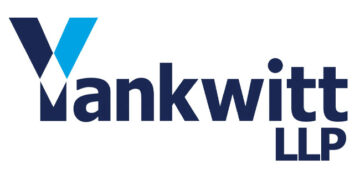Despite mounting pressure from state legislators and good-government groups, the four-man state Board of Elections deadlocked this month on a decision to rescind a 19-year-old board opinion that has effectively allowed corporations to use multiple limited liability companies to circumvent political contribution limits. Critics claim the loophole allows wealthy donors to corrupt the political process.
The board, which includes two Republicans and two Democrats, split along party lines in its vote.
“It”™s disappointing that the Board of Elections missed this opportunity to close our state”™s gaping LLC loophole,“ state Sen. Daniel Squadron and Assemblyman Brian Kavanagh said in a joint statement following the April 16 decision. “The BOE instead chose to continue allowing unlimited sums of anonymous dollars to pervert the entire process.”
Both legislators have bills pending that would address the loophole, but gridlock in the Republican-led Senate has forced Squadron to use a procedural rule to force the bills to be considered in this legislative session.
Squadron”™s bill would treat LLCs as corporations instead of individuals and close the LLC loophole so that “unlimited sums can no longer enter the political system without transparency or accountability.” The bill also lowers the contribution limit for corporations to $1,000 from its current limit of $5,000, according to Squadron.
State election law currently places aggregate calendar year limits on the amount of political contributions that can be made by individuals and corporations to state candidates and committees. An individual may contribute up to a total of $150,000 in a calendar year. A corporation may contribute up to a total of $5,000 in a calendar year. Each affiliated or subsidiary corporation, if a separate legal entity, has its own limit, according to the 1996 opinion from the elections board.
Squadron and Kavanagh are not alone on their reform mission, as Gov. Andrew Cuomo, state Attorney General Eric Schneiderman and a host of good-government groups have expressed their support for closing the loophole. Schneiderman said the board”™s past “mistake” has “made a mockery of campaign finance rules.”
“The LLC Loophole is an exception that swallows the rule ”” allowing wealthy individuals to circumvent contribution caps and steer limitless dollars to favored campaigns,” he said. “The real world effect of the loophole is substantial.”
According to Squadron, limited liability companies may donate up to $60,800 to a statewide candidate in each election cycle. LLC ownership is not disclosed under the current system, making it nearly impossible to track down contributions to their source.
Of all the money raised by state-level candidates and party committees in New York, 14 percent is given by LLCs, three times the amount of small-level individual donors. Between 2005 and 2013, LLCs contributed more than $40 million to New York candidates, parties and political action committees according to Squadron.
Three days before the BOE vote, a collection of good-government groups, including the Brennan Center for Justice, Common Cause New York, League of Women Voters of New York State, Citizens Union, New York Public Interest Research Group (NYPIRG) and Reinvent Albany, in a letter to Cuomo urged him to pressure the BOE to close the loophole at its April 16 meeting.
“Since the board”™s decision, individual large donors and corporations from New York and other states have taken full advantage of the LLC Loophole,” they wrote. “As the Moreland Commission discovered in 2013, one entity ”˜utilized 25 separate LLCs and subsidiary entities to make 147 separate political contributions totaling more than $3.1 million since 2008.”™ Further, because it is often unclear who controls an LLC, the loophole allows large contributors to conceal their identities.”
Cuomo has also been outspoken about the loophole, but his efforts to address it in legislation have been called into question because of his own close relationship with LLCs.
Citing NYPIRG research, the Gotham Gazette reported that 20 percent of Cuomo”™s $35 million campaign chest in the November election came through the LLC loophole ”” particularly via Leonard Litwin, a Manhattan real estate developer who gave Cuomo more than $1 million for his re-election campaign.
As protesters demonstrated outside the recent BOE meeting with “Democracy is not for sale” signs, board members deadlocked on the issue.
“This is not a matter for an administrative agency, the state Board of Elections, to decide,” said Peter Kosinski, the board”™s Republican co-chairman. “This is a matter for the state Legislature.”
Squadron said the reasoning behind the inaction was perverse considering it was the 1996 BOE decision that created the loophole.
Kosinksi was joined in the split vote by fellow Republican commissioner Gregory Peterson. Democrats Douglas Kellner, board co-chairman, and commissioner Andrew Spano, the former Westchester county executive, were in favor of addressing the issue.
Kosinski”™s view that the matter should not be decided by a state agency was echoed in a letter to the board from Heather C. Briccetti, president and CEO of the Business Council of New York State Inc.
Citing procedural and legal technicalities, Briccetti requested that the board deny any proposal that would reclassify LLCs as corporations.
“The Business Council”™s letter was not taking a stand for or against, and our position is if individuals want to discuss this as part of the broader issue of campaign finance reform, we would be willing participants in that discussion,” said Business Council of New York State spokesman Zack Hutchins.
“As the law stands now, it is a viable mechanism for LLCs to donate to political campaigns,” he said.
At The Business Council of Westchester, “I haven”™t heard any of our members who are concerned about this one way or the other,” said John Ravitz, executive vice president and chief operatinig officer of the county”™s largest business membership group. “To ask a governing board that doesn”™t have any legislative power to do this is far reaching.”
Ravitz formerly served as executive director of the New York City Board of Elections and represented a Manhattan district in the state Assembly.
“When I see resolutions that actually usurp the process it makes me a little uneasy,” he said. “I think it has to be done through a statutory change and not through the election board.”
In the wake of the board stalemate, Common Cause New York called on the governor and state legislators to close the loophole before the legislative session in Albany ends on June 17. “The finger-pointing must end, as it is clear that it is now the responsibility of our elected leaders to act,” the group said.

















